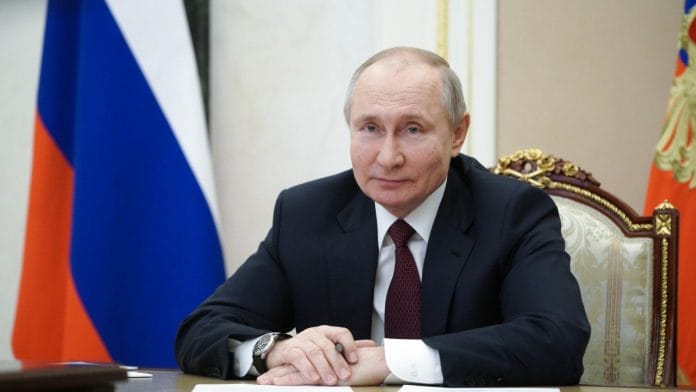A fairly common view expressed since Russian President Vladimir Putin unleashed his forces on Ukraine is that he has come unhinged. If he ever follows through on his threats to cut off natural gas supply to Europe, I might be inclined to agree.
Invading Ukraine is a horrific act, and also entirely irrational. Even if Russia’s troops were performing better, the price Russia will pay in economic terms alone seems to vastly outweigh the benefits of embarking on a lengthy and likely draining occupation of a large neighboring country.
Yet Putin and others around him no doubt see it differently. From their perspective, Russia is a global power surrounded by outright adversaries and frenemies like China. It has vast mineral wealth and a large military but also suffers from endemic economic and demographic weaknesses. The imperative to expand its borders as a means to defend them stretches back at least as far as Catherine the Great. Plus, Putin has faced few consequences for his prior adventurism. Throw in an erroneous assumption that all Russian speakers yearn for the motherland, and going for broke now may well seem like a viable political choice.
Clearly, the war isn’t going according to plan for the Kremlin. The West has also displayed more resolve than the reaction to Putin’s earlier excursions signaled.
These setbacks, combined with Putin’s worldview, help explain why he would risk even more damage to Russia by threatening to halt natural gas sales.
This week, the threat came in the guise of a reiterated demand that European buyers pay for gas in rubles rather than euros or dollars. There is a monetary angle to this, forcing buyers to sell hard currency and buy the battered ruble. But the main motivation is to remind those buyers who is heating their homes — and who controls the tap.
As it is, the Kremlin announced Thursday a convoluted plan whereby customers effectively keep paying in euros and dollars, but via designated accounts in Russia that convert that to rubles. Putin, it seems, wasn’t quite ready to follow through on his ultimatum.
Nor should he be. Like the nuclear weapons he has brandished rhetorically, an actual cutoff would entail some mutually assured destruction.
Putin’s war has pushed the European Union to radically rethink its long-term energy relationship with Russia, one that has endured for half a century, even during the Cold War. The incentive remains for both sides not to rock the boat too much. Europe still depends on Siberian gas, which is why it hasn’t sanctioned it. And Russia still relies on payments for it. Indeed, gas payments have risen in importance, according to Thane Gustafson, author of a history of the gas relationship with Europe. His rough math suggests that the share of gas in Russia’s hydrocarbon export revenue — which accounts for more than half of exports overall — has risen to half amid all this disruption, up from a typical level of one-fifth. He adds:
The irony is that one of the bigger investments under Putin has been the development of gas infrastructure to serve the European market for another generation. Yamal, Blue Stream, Nord Stream. All of that is now in ruins.
The economic and social impact in Europe of a prolonged cutoff, including the likelihood of a deep recession, would mark a big escalation of the conflict. Tempting as it may be to see a cutoff as just tit-for-tat following the sanctions on Russia, that ignores the fact that the original “tat” was the brutal and ongoing attack on Ukraine. In any case, if Putin does actually cut off supply, with all that entails, it perhaps should be read as a sign of desperation. Or that whatever method there may have been in his madness, madness has become the method. –Bloomberg
Also read: Russia-Ukraine conflict may lead to shortage of 4-6 lakh tonnes of crude sunflower oil for India






